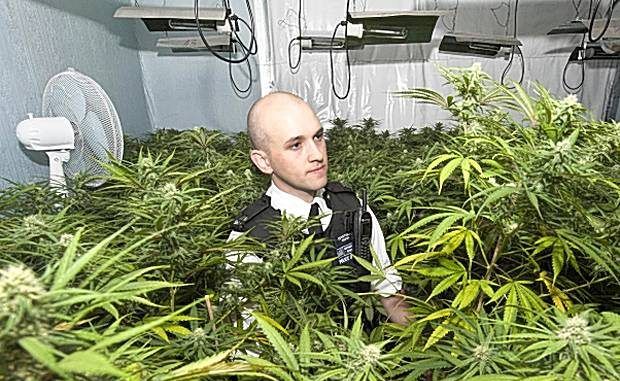
The UK’s top police officers have said that arresting “dope-heads” has never been a top priority, and that they intend to change their priorities when it comes to the policing of marijuana ‘crimes’.
Sara Thornton, head of the National Police Chief’s’ Council, has said that police forces in the UK need to shift their focus away from ‘traditional’ offences due to budget cuts and staff losses.
Dailymail.co.uk reports:

BYPASS THE CENSORS
Sign up to get unfiltered news delivered straight to your inbox.
You can unsubscribe any time. By subscribing you agree to our Terms of Use
‘Crime is changing in this country. There are a lot fewer burglaries than there used to be and a lot less car crime,’ she said.
‘The sorts of crimes that are on the increase, sexual offences, concerns about terrorism, cyber crime, that’s where we really need to focus.
‘We need to move from reacting to those traditional crimes to thinking about focusing on threat and harm and risk and really protecting the public.’
Mrs Thornton’s comments on cannabis appear to confirm growing suspicions that the drug is being decriminalised by the backdoor.
Several police and crime commissioners – the political leaders of each force – have spoken out to say the drug is not a priority for them.
Senior figures in Durham, Derbyshire, Dorset and Surrey suggested those caught smoking or cultivating the drug are likely to be let off with a warning.
Speaking to the BBC yesterday, Mrs Thornton said that if someone walked into a police station and complained about cannabis growing, officers would ‘record it’.
Asked if they would investigate, she replied: ‘That might depend on the circumstances. What we need to do is respond in proportion to the nature of the offence.’
Former Thames Valley Police chief Sara Thornton (above), who leads the National Police Chiefs’ Council, said forces tipped off about a cannabis farm at a house would probably only ‘record’ the offence
She added: ‘It has never been a top priority to go looking for cannabis in people’s houses. It is however against the law.
‘If somebody was caught they would be dealt with at the very lower end of the scale. What we are most concerned about is organised crime, those growing cannabis on an industrial scale.’
Mrs Thornton leads the police co-ordination body which replaced the sometimes controversial Association of Chief Police Officers (Acpo).
She is often described as David Cameron’s favourite officer after spending eight years as his the police chief for his constituency.
Her £252,000-a-year role in her Westminster offices sees her shaping national police policy and the work of all other chief constables.
They will pay close attention to her comments on burglary and whether people should expect officers to attend.
Mrs Thornton admitted it ‘could be’ that police would not attend someone’s home when they reported that their iPad had been stolen.
She said: ‘What we are saying is if we are really serious about putting a lot of effort and resource into protecting children for example, that might mean that if you’ve had a burglary and the burglar has fled, that we won’t get there as quickly as we’ve got there in the past.
‘Of course we will still want to gather evidence, but we might do it in different ways.’
Pressed on whether an officer will always attend a burglary victim’s home, she said the expectations of the public need to change.
‘Our budgets have been cut 25 per cent over the last four years. We are anticipating those sorts of cuts again,’ she said.
‘Over ten years we will have lost about 70,000 posts and I don’t think it’s possible for us to carry on doing what we’ve always done.
‘Because we will just fail the public but also we will cause unacceptable stress amongst our officers and staff.
‘I think in terms of the threat to children from sexual offences, from sexual abuse, from online abuse, I think that’s what we’ve got to prioritise.’
Mrs Thornton will be at the vanguard of police reform over the next few years amid simmering tensions over where the ‘thin blue line’ should be positioned.
Chief constables are under pressure to continue to provide traditional beat policing while tackling new threats from cybercrime to child slavery.
They are braced for more difficult years as the Government holds a tight rein on budgets and the numbers of officers and staff fall.


